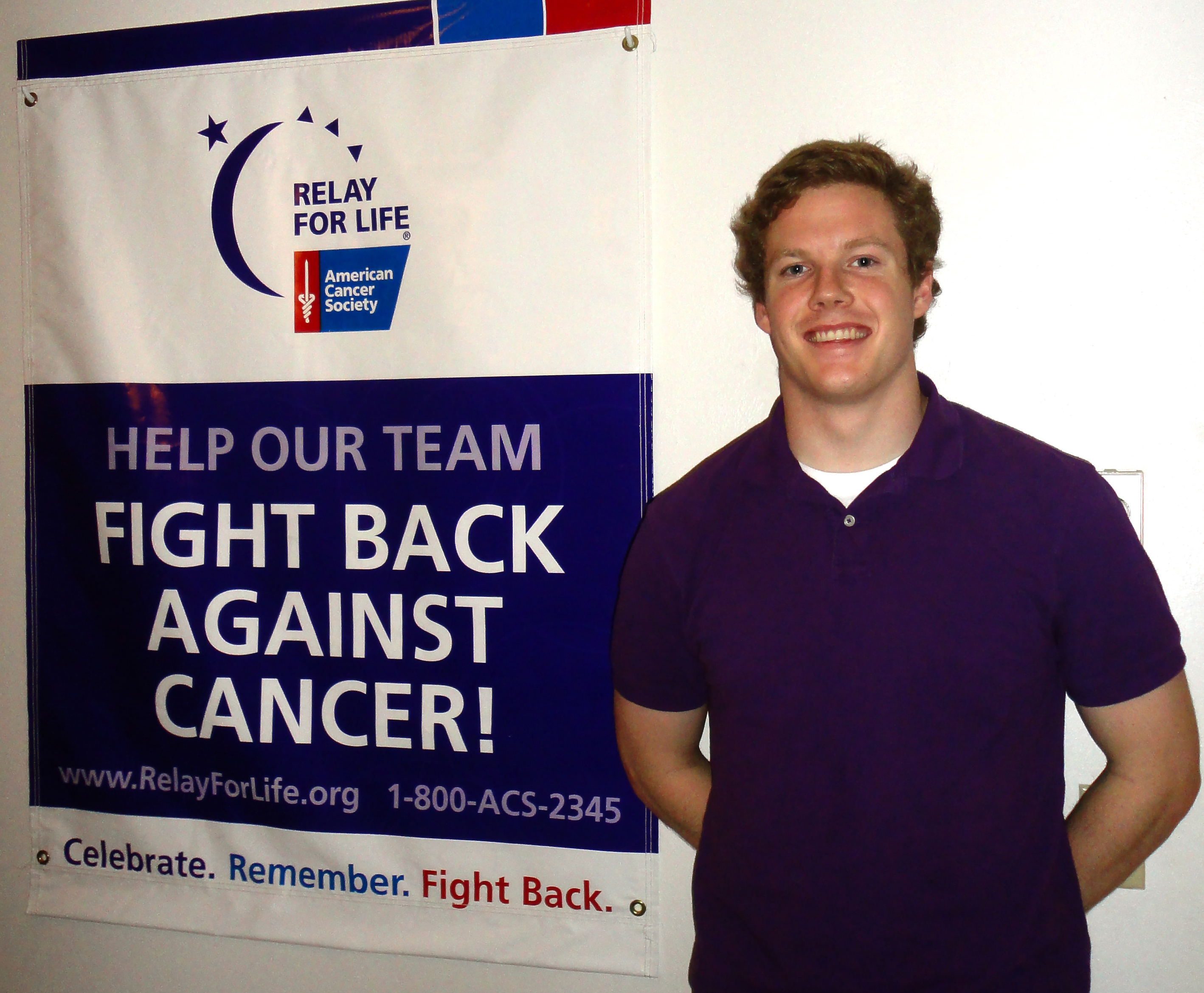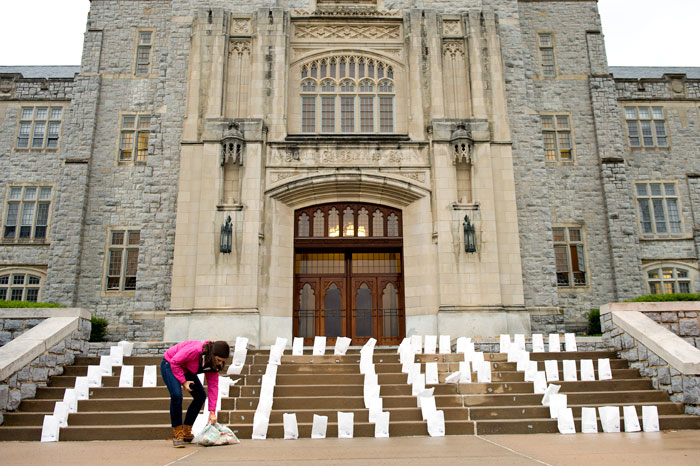Student director of Relay For Life prepares for a busy year

Whether participants are in it for strong personal connections, the food, the entertainment, or even the Zumba, it’s important they remember that Relay For Life is more than just a one-time event. It is a 365-day fundraising effort with the event taking place as a culmination and celebration of all of the hard work they put in all year long.
Fundraising for Virginia Tech’s 2013 Relay For Life just concluded with $570,967.94 raised, making it once again the No. 1 collegiate Relay in the world. But, the director says he's already thinking about next year’s event.
Thomas Lawler of Clemmons, N.C., is a senior majoring in business information technology in the Pamplin College of Business. Over the past three years Lawler has gone from Relay participant to assistant director to 2014 director of Relay For Life.
“Bigger and better,” said Lawler, “We will strive to once again be the number one collegiate Relay in the world for the sixth straight year.”
The American Cancer Society annual report estimates 1,660,290 new cases of cancer and 580,350 deaths this year in the United States. With these numbers up from last year, it’s no wonder bigger and better is his goal.
In his role as assistant director last year, Lawler took a behind the scenes role, making sure everything before, during, and after the event ran as smoothly as possible.
Now, in his new director position, he is ready to take on the challenge of being a face for Relay For Life. Lawler was selected after a speech explaining his desire to be director, a vote by the current executive committee, and approval by Virginia Tech’s American Cancer Society staff partner Kate LeBouf.
His list of responsibilities will increase come fall. Lawler expects to commit 15 to 25 hours each week to Relay For Life. From working with university officials to managing a student organization of more than 100 individuals, he will do it all. Luckily he won’t be alone.
Davey Sours of Luray, Va., a senior majoring in political science in the College of Liberal Arts and Human Sciences, and will serve as the assistant director this year. When asked about working with Sours, Lawler responded with enthusiasm.
“He really took pride and ownership over everything he accomplished (last year), and I believe he will be a fantastic teammate to make this year the best we have ever seen,” said Lawler.
With the help of LeBouf and an executive team that will be chosen this fall, Lawler feels confident that he and Sours can make this Relay For Life the best yet.
Although he can’t reveal too much, Lawler did say Relay will be holding an event in the fall that will be much bigger than any previous fall event.
To make all of this happen Lawler and Sours will be seeking individuals with passion, drive, an ability to work hard, and a “huge hate for cancer” to make up this year’s executive committee.
“I am excited to get the ball rolling,” Lawler said. “Being in the room as we selected our exec team last year is what really got me excited for the year. Just sitting down at night and thinking about all the great people who will make the organization the best it can be is incredible.”
As he prepares to attend his fourth Virginia Tech Relay For Life, Lawler reflected on the most unusual thing he’s witnessed at one of these events. “Zumba at about 3 a.m. gets weird no matter how you look at it. The people that are there to experience it are committed, but delusional [from lack of sleep] and it shows. I love that part every year and we hope to see the folks from rec sports back at it again this year.”
Dedicated to its motto, Ut Prosim (That I May Serve), Virginia Tech takes a hands-on, engaging approach to education, preparing scholars to be leaders in their fields and communities. As the commonwealth’s most comprehensive university and its leading research institution, Virginia Tech offers 240 undergraduate and graduate degree programs to more than 31,000 students and manages a research portfolio of $513 million. The university fulfills its land-grant mission of transforming knowledge to practice through technological leadership and by fueling economic growth and job creation locally, regionally, and across Virginia.





.jpg.transform/m-medium/image.jpg)